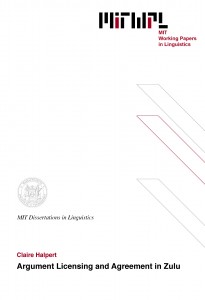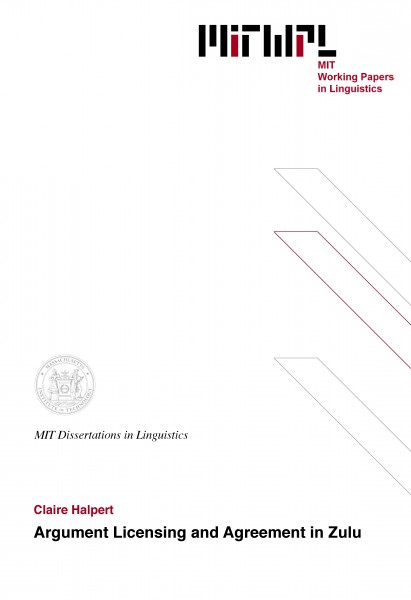Argument Licensing and Agreement in Zulu
Claire Halpert, 2012
In this thesis, I examine some core grammatical phenomena – case licensing, agreement, the EPP – through the lens of the Bantu language Zulu. Zulu has a number of remarkable and puzzling properties whose analysis affords us new insight on the interaction between these components. Despite a number of unusual-looking properties in the domain of nominal distribution, I propose that Zulu has a both a system of abstract structural case and a system of morphological case. This conclusion is notable because it has long been assumed that Bantu languages lack both of these types of case (e.g. Harford Perez, 1985). Though the type of case system that I propose for Zulu is at its core similar to our current under- standing of case, there are a number of differences between the case system I argue for in Zulu and more familiar case systems. In particular, I demonstrate that the positions in which structural licensing occur in Zulu are not the familiar positions of structural licensing: none of the heads that function as structural licensers in a language like English – To, vo, and Po – are licensers in Zulu. The absence of licensing from these positions gives rise to a system in which case-licensing and phi-agreement have no syntactic overlap. I show that the interactions between phi-agreement and morphological case in Zulu provide a novel argument in favor of treating phi-agreement as a syntactic process. I also argue that Zulu has a novel type of morphological case: the augment vowel functions as a freely-applying case-licenser for nominals that lack structural case. The existence of such a morpheme is notable because this type of element has been explicitly ruled out by various theories (e.g. Schütze, 2001) on the grounds that it would render the Case Filter vacuous. Finally, I build on this system of case in Zulu to analyze constructions that involve a puzzling agreement pattern: complex NPs and raised subjects appear to allow optional agreement in positions where Zulu otherwise requires it. I argue that the optional agreement effect in these constructions arises from the possibility for To to agree with a CP. From these constructions, we gain insight into the properties of agreement and the EPP in Zulu. Specifically, these constructions demonstrate the inadequacy of a theory of “reverse agree” to capture the patterns in Zulu and the primacy of a syntactic EPP to Zulu syntax.

